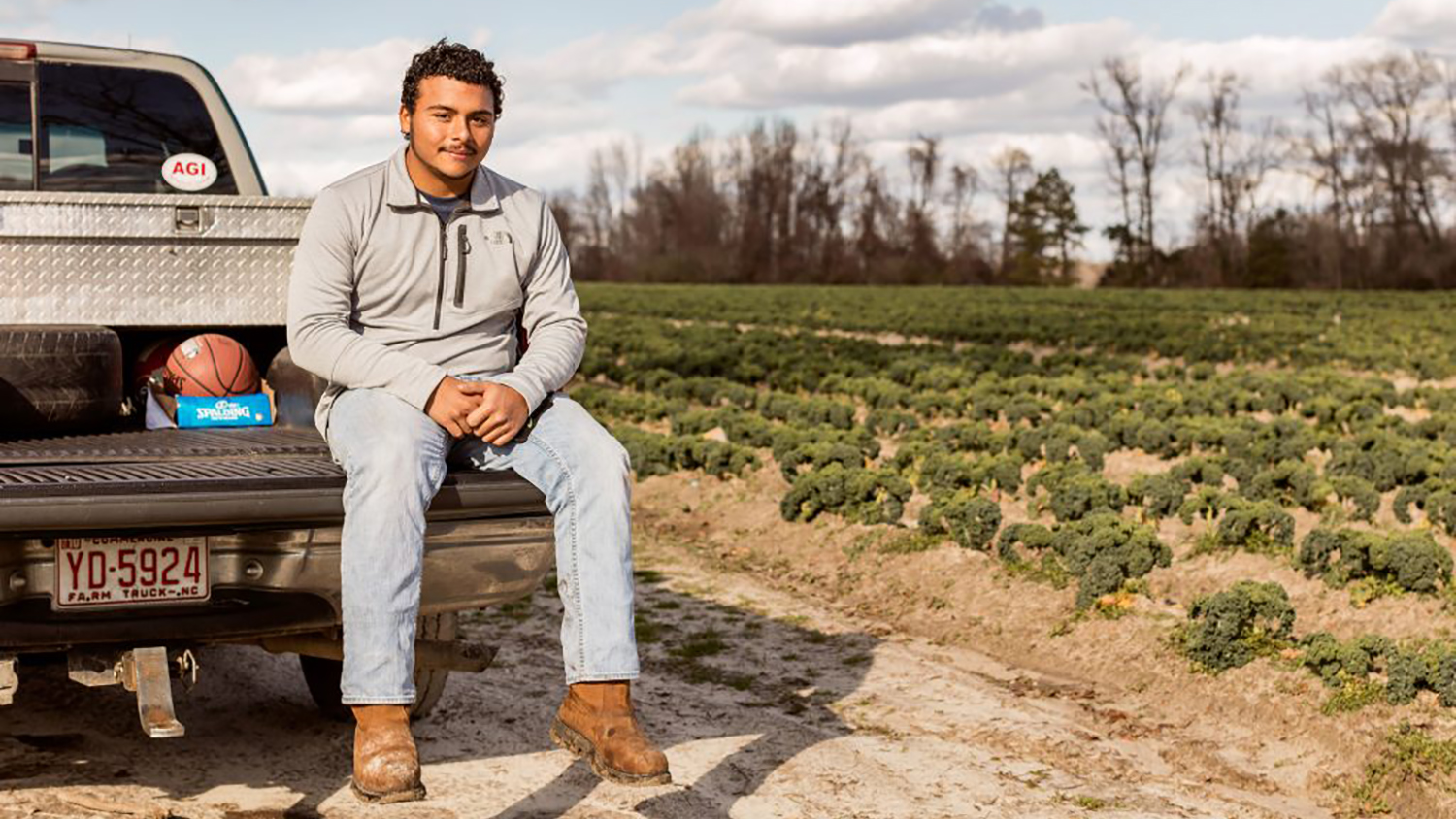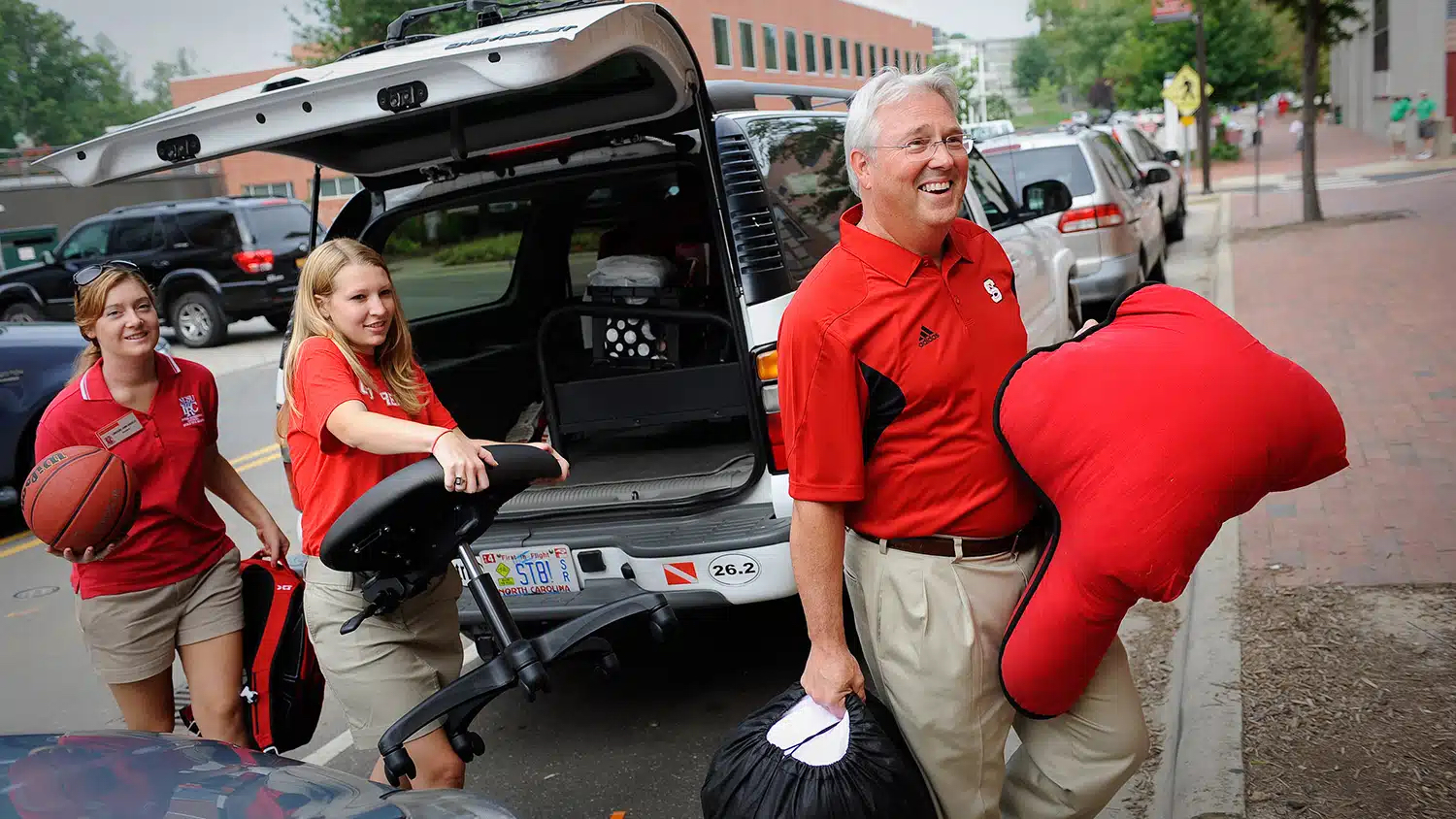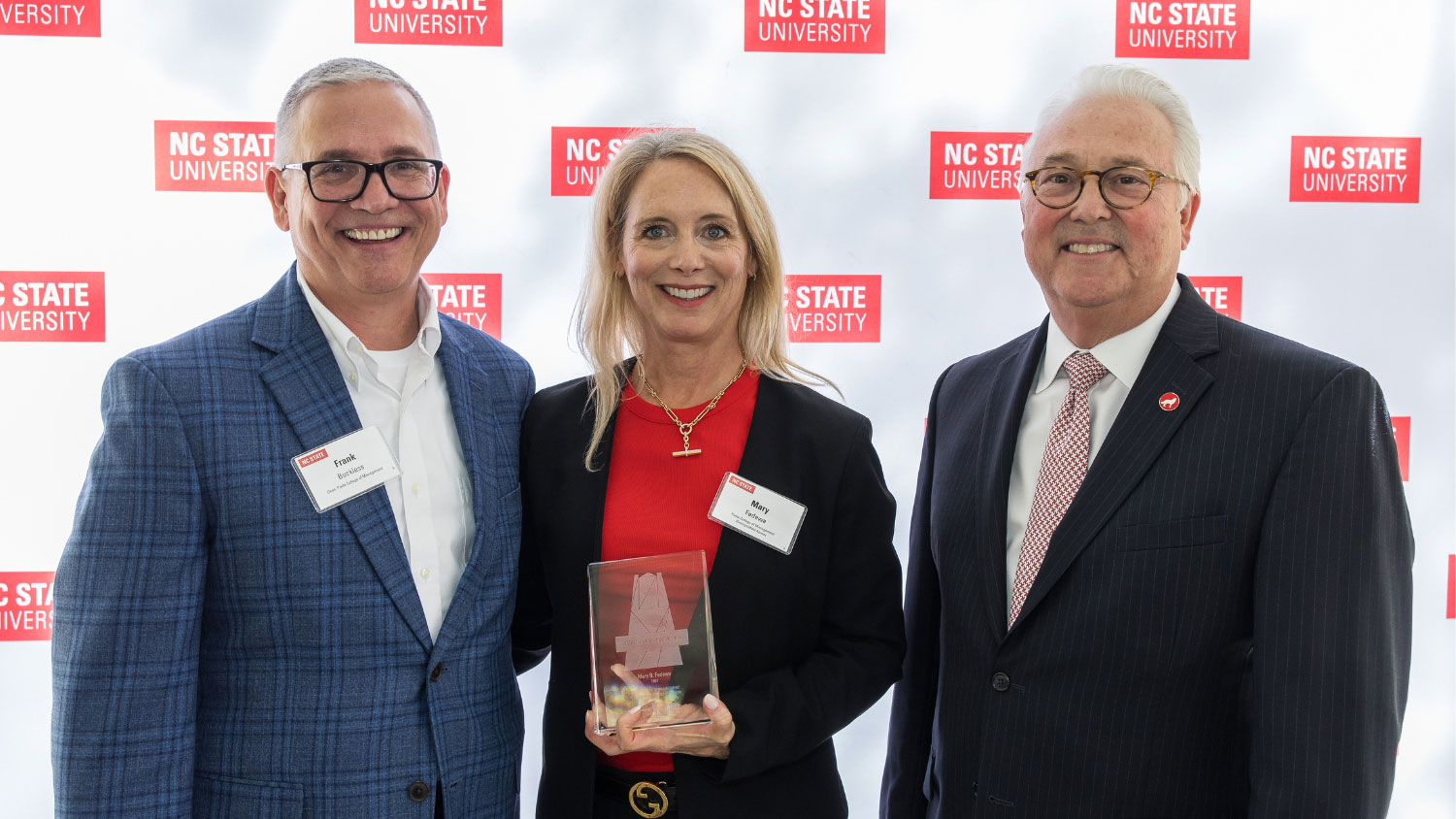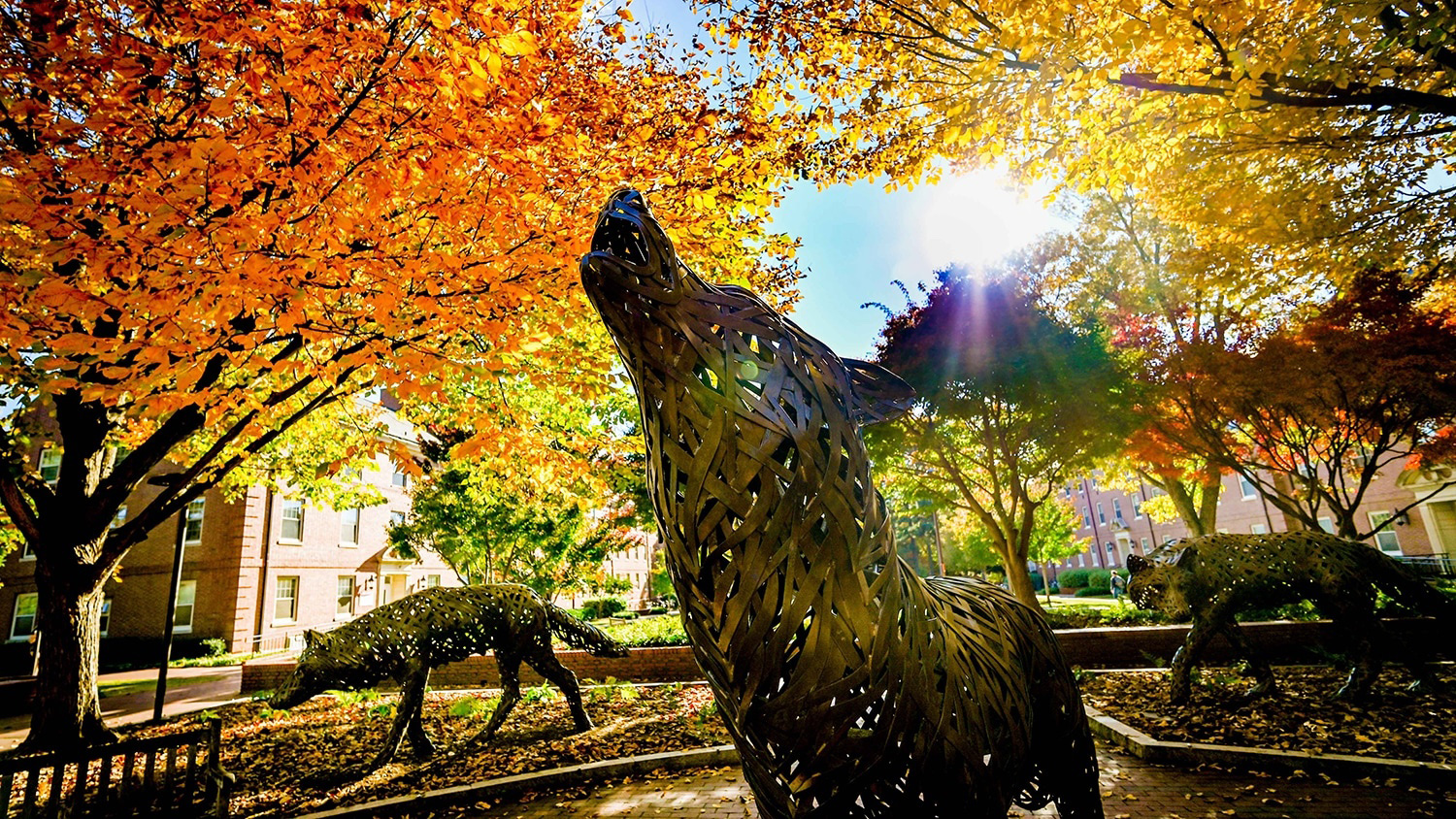Smoothing the Bumps in the Road

When Staci Shelley skimmed The New York Times one morning earlier this year, she didn’t expect to read about a student at her alma mater — much less to reach out to support him.
But not only did the small act of kindness that followed help that student, it helped start a new fund to support other NC State students in small ways as they follow their own dreams.
John Dunn made an impression on Shelley that late January morning. Dunn — among several students from across the country featured in a story titled “Voices from Rural America on Why (or Why Not) to Go to College” — grew up in Rose Hill, a small community in eastern North Carolina’s Duplin County.
He is enrolled in NC State’s Agricultural Institute as a first-generation college student. As the story detailed, no one else in his immediate family, which has been challenged by drugs and poverty, has finished 12th grade. It took a certain amount of bravery for Dunn to leave behind the fruit and vegetable fields where he has labored since early childhood, and his 100-member high school graduating class, for an urban campus of some 34,000 students.
Shelley, a 1986 graduate of the College of Humanities and Social Sciences and a longtime corporate attorney in Baltimore, is proud of NC State’s tradition of providing opportunity to a variety of students. She was heartbroken to read that Dunn, although earning good grades, sometimes struggled to complete assignments because he did not own a computer.
“You could tell that John is an amazing young man who worked so hard and overcame so much to realize his dream of attending State,” the alumna said. “Reading that he didn’t have a laptop, which is so important not only for his academic coursework but for preparation for the work world, really bothered me.”
“My degree from State has benefited me in so many ways that I didn’t want not having a computer to be the one thing that could stop John from getting the most out of his academic experience and achieving his goal of graduating.” — Staci Shelley
To make a long story short, Shelley got in touch with the university’s Division of Academic and Student Affairs (DASA). She worked through official channels to buy the surprised student that laptop.
“It’s a nice feeling to know people want to help just because of reading a story about me,” Dunn said. “I feel very appreciative — although I don’t entirely understand why people want to help me. I’m just doing what I’m supposed to be doing, no different from anyone else, from any other student, really.”
When donors think about supporting students, scholarships — which play a critical role in broadening access, attracting top scholars and fueling academic inquiry, imagination and drive — often come to mind. Adding more scholarships is an important goal of the university’s Think and Do the Extraordinary Campaign.
Financial aid and scholarships don’t address every need, however. After the newspaper story inspired both Shelley’s gift and a generous donation from a nonalumni Greensboro couple, DASA officials established the new Student Emergency Fund.
“We decided that this was a great opportunity to create something that we’ve been thinking about for a while and have seen as an increasing priority,” said Mike Mullen, vice chancellor and dean for academic and student affairs.
The DASA staff often fields inquiries seeking assistance to meet NC State students’ essential needs beyond tuition and fees.
After Hurricane Matthew hit North Carolina last September, for example, the staff learned of several students who lost most of their clothing and other belongings when family homes suffered devastating flooding. Apartment fires, car breakdowns or illnesses requiring medications not covered by insurance are among the unexpected burdens that can challenge students. Challenges can snowball into larger problems.
In response to needs represented within the student body, DASA created the Feed the Pack food pantry, a program that supports anyone in the university community, and the Wolfpack Styled Professional Clothing Closet operated by the NC State Career Development Center.
The Student Emergency Fund represents a next step.
“Once they arrive on campus, it remains an ongoing challenge for students without resources to stay in school,” Shelley said. “These students live so close to the financial edge that even a small bump in the road can disrupt their path to graduation. The fund is just an extension of this idea — the Wolfpack coming together to ensure that the next generation of amazing students has what they need to make their dream of a degree a reality.”
The fund will be administered through the NC State University Foundation and Mullen’s office, which will carefully vet requests.
An Advising Success Story
Dunn has benefited from philanthropy in other ways. He’s a success story for the College Advising Corps, a national nonprofit program that aims to increase the number of low-income, underrepresented and first-generation students reaching and doing well in higher education.
North Carolina’s first CAC program launched in 2007. NC State joined the effort in 2014 as part of a partnership with the Charlotte-based John M. Belk Foundation, which provided a three-year $10 million grant. The foundation recently announced an additional $10 million commitment due to strong results; there are plans to add a component focused on engaging parents.
The Corps places recent college graduates in rural and underserved communities to work with students who may think higher education is beyond reach, if they even consider it. These advisers help young people understand their options, encourage them and assist in college-related tasks. This past school year, 106 advisers — alumni of current partners NC State, the University of North Carolina at Chapel Hill, Duke University and Davidson College — worked in 127 North Carolina high schools.
For 2016-17, the NC State College Advising Corps, housed within DASA, placed advisers at 21 high schools in 10 counties.
Along with increasing individual student success — and aiding guidance counselors who face an average ratio of 1:375 students — the program is designed to boost North Carolina’s workforce readiness and economic capacity.
Taylor Springs, a 2015 NC State graduate, has served as an adviser at Dunn’s alma mater, Wallace-Rose Hill High School. Dunn was involved in FFA there and always interested in a future in agriculture. A longtime NC State fan, he often sought Springs’ advice about college possibilities, the application process, standardized testing and financial aid.
“Without her, I probably wouldn’t be here at State at all,” Dunn said. “I always wanted to go to college, but I honestly didn’t think I had much chance to get there. She helped me with everything — any time I had a question. I still ask her things sometimes.”
“There are students like John all across our state, who decide not to go to college because they can’t afford the housing deposit or don’t have a way to get to orientation,” said Patti Baynes, program director of the university’s College Advising Corps. “It’s important to ensure all students have access to a postsecondary education and not be deterred by means beyond their control. By rallying our support and resources, we can help all of our students enroll, persist and ultimately graduate.”
Dunn is excited to be well on his way to completing his two-year associate’s degree and working in the swine industry. His experience in the College of Agriculture and Life Sciences has been extraordinary.
“Being at NC State has been pretty smooth overall,” he said. “I’ve already had a lot of great opportunities here. It’s a good feeling to know I’m going to be prepared for a good job.”
Gifts like Shelley’s and the Belk Foundation’s change NC State students’ lives daily, Mullen said.
“Donors support everything from the arts and service learning to living and learning villages, internships and leadership programs,” Mullen said. “They’re critical in transforming the student experience. There are so many ways to make a difference.”
Oops! We could not locate your form.
- Categories:


